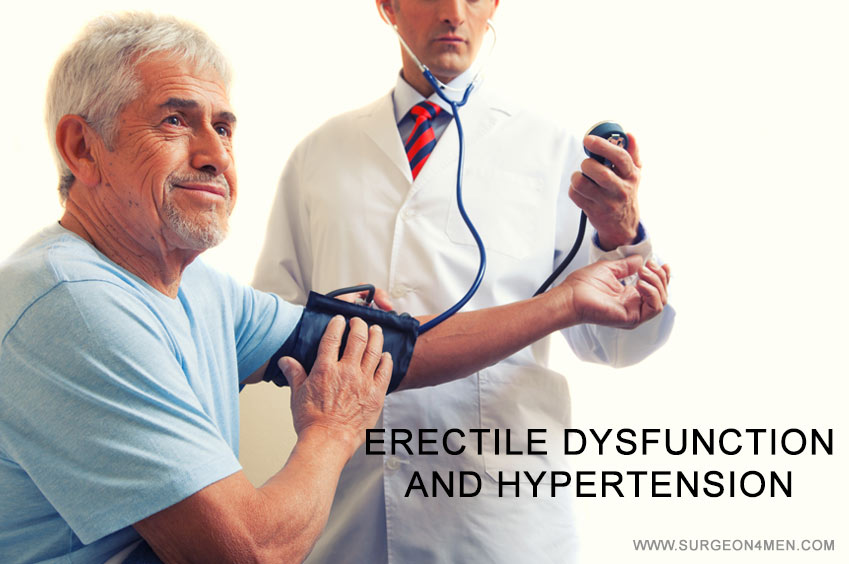Erectile Dysfunction and Essential Hypertension
Essential hypertension is increasingly being considered one of the risk factors for erectile dysfunction. In fact, sexual dysfunction in both men and women is more prevalent in hypertensive individuals. According to a research report published in the October 2000 issue of The Journal of Urology, about erectile dysfunction is highly common in hypertensive men. The study notes that about 70 percent of men with hypertension symptoms suffer from some degree of erectile dysfunction.
Relation Between Erectile Dysfunction and Essential Hypertension
With impaired nitric oxide release, the arteries of penis are not able to generate necessary dilation in response to sexual arousal. To make matters worse, there is a reduction in blood flow due to fatty buildup in artery walls as a result of hypertension. Reduced blood to the penis is one of the prime causes of erection dysfunction.
Reduced Levels of Nitric Oxide
Researchers are of the opinion that the reduced levels of nitric oxide in those with essential hypertension may result in erectile dysfunction. Since high blood pressure is known to increase the progression of atherosclerosis, it can affect the supply of blood to the penis to expand and contract properly, thus contributing to erectile dysfunction.
In a person with hypertension,
- The arterial lining that supplies blood to different organs of your body may be damaged
- There is a progressive decline in the ability of cells inside the inner arterial walls, which release nitric oxide
With hypertension being a strong risk factor for erectile dysfunction as well as heart attack and stroke, it is imperative to control your blood pressure and take medication therapy accordingly to deal with the problem. However, some people develop contradiction to some hypertension medicines and thus need to make some lifestyle changes to keep their blood pressure in check and simultaneously address erectile dysfunction.
Since erectile dysfunction and essential hypertension are related, it is best to monitor and manage your blood pressure and make lifestyle changes that can help alleviate the problem.
